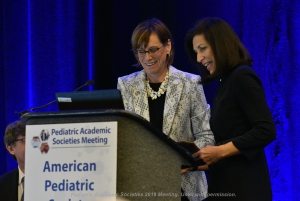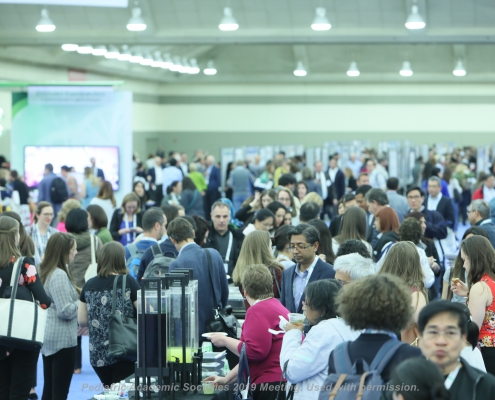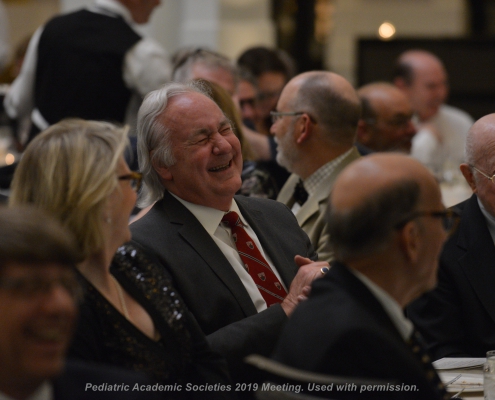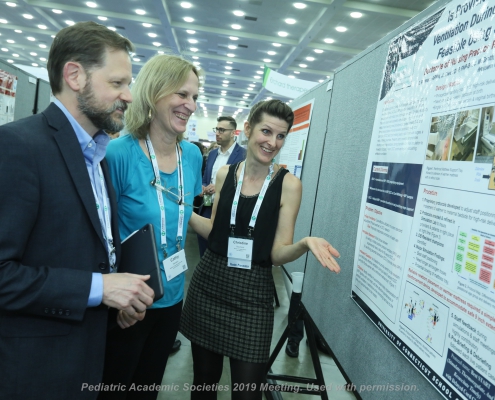
SCHOLARLY SESSIONS
Timeline:
Call for Proposals: Aug. 6-Oct. 2, 2019
Proposal Review and Selection: Oct. 2-23, 2019
Notification sent by email: Nov. 8, 2019
Basic-Clinical-Translational Round Tables
Encourages collaboration between basic scientists, translational researchers, and clinicians who have addressed and advanced a pediatric healthcare challenge. Speakers will outline the clinical challenge and investigative approach to solution(s) that have improved/may improve care. Roundtables should provide an overview of new therapeutic applications and discuss related emerging mechanisms and biological effects being discovered. The overall aim is to identify areas that require further exploration to optimize therapies and develop novel directions for a particular disease focus. Length: 1.5 or 2 hours
Clubs (Limited to those that met during PAS 2019 Meeting)
Complete scientific and/or program content must be submitted to the Program Committee by the deadline. Length: various
Debate/Pro-Con Discussions
Designed to address a variety of controversies across pediatrics—diagnostics, medical management, therapeutics, research strategies, policy, and more—thereby creating opportunities for robust debate and audience participation through Q&A or technology-assisted live polling. It is expected 2-3 topics relevant to the target audience will be debated. Length: 1.5 or 2 hours
Hot Topic/Topic Symposia
Addresses issues and controversies around topics of interest to more specialized audiences, e.g., subspecialists, general pediatricians, educators, etc. As such, these symposia focus on more specific topics than State of the Art Plenary sessions. Hot Topic/Topic Symposia generally include 3-4 presentations with time for active audience discussion. Audience size varies; sessions are typically smaller than State of the Art Plenary sessions. Length: 1.5 or 2 hours
Industry Sponsored Symposia (ISS)
Educational programs planned by sponsoring companies/organizations; must be scheduled during time slots that do not compete with PAS programs or exhibit hours. Symposia are required to meet ACCME Guidelines and Standards for Commercial Support and the content is free of commercial bias for or against any product. More Information about ISS.
Pre-registration is required. Host companies send separate invitations and on-site registration is available at the door.
Meet the Professor Breakfast Sessions
Informal, interactive group discussions provide trainees and junior faculty a chance to meet senior academic physicians who can provide career guidance in their field. At PAS 2020, these sessions will be part of the Table Topics Networking Breakfast on Sunday morning. Pre-enrollment is not required. Length: 1.5 hours.
Panel Discussions
Lead by experts on timely pediatric issues with broad appeal provide an interesting and engaging learning opportunity for attendees. A good panel discussion is expected to be a well-choreographed performance with spontaneous audience participation. A moderator with subject area expertise, who is not a panelist, should be identified to effectively lead the discussion. Proposed panelists (typically 3-5) should synergize with the moderator’s expertise to develop a list of discussion questions and learning objectives for the session. Length: 1.5 or 2 hours
State of the Art Plenary
Sessions that present seminal advances in pediatrics that are of interest to the broadest possible number of attendees, typically drawing a large audience in excess of 500 attendees. Advances in biomedical research that are likely to have a major impact on the health of children are often highlighted, but other topics, e.g., health policy issues, that affect a large number of academic pediatricians may also be appropriate for this forum. State of the Art Plenary sessions usually consist of invited lectures from one to three recognized leaders. Opportunities for significant interaction are typically limited due to the large audience size. Length: 1.5 or 2 hours








